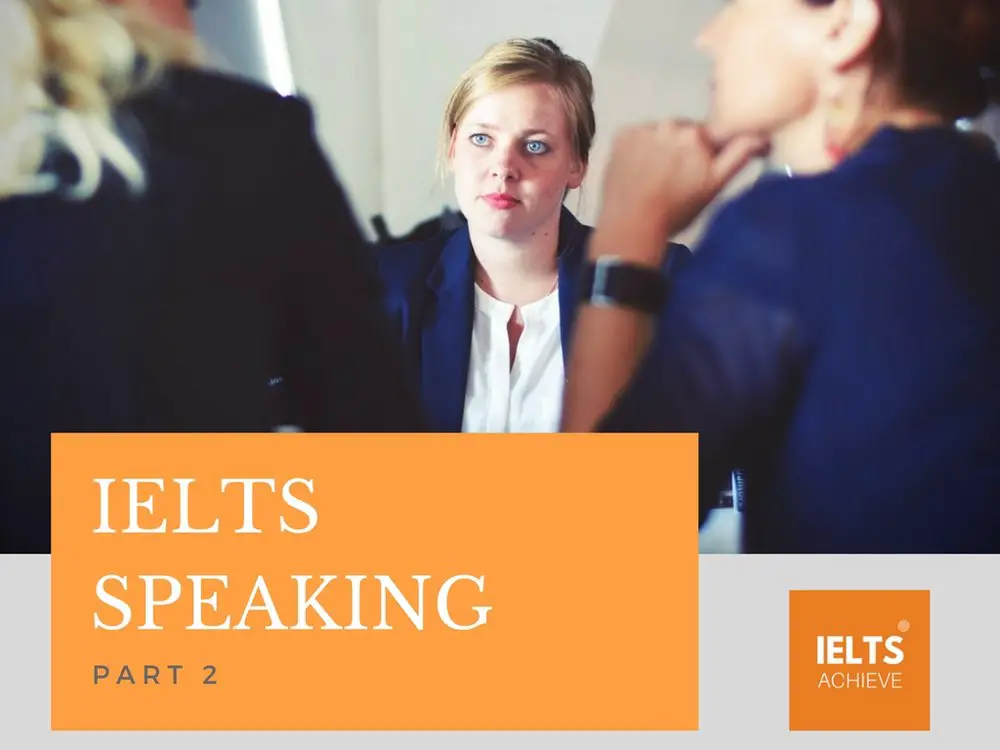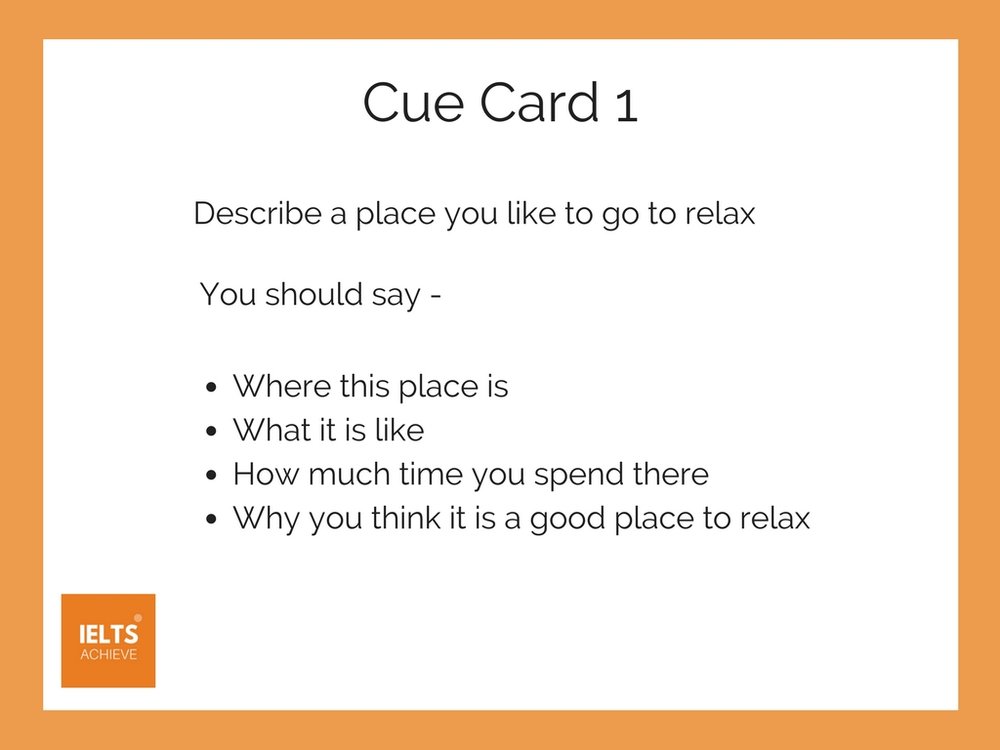
In this post, we will be looking in-depth at part 2 of the speaking test.
The IELTS Speaking Test lasts 11-14 minutes.
The test has three parts, where you are interviewed by a trained examiner. You are not allowed to use a dictionary during the test. IELTS Academic and IELTS General students take the same test and it is marked in the same way.
PART 2 INFORMATION
Part 2 = 3-4 minutes – After part 1 the examiner will give you a card or booklet with your question and related ideas you need to talk about.
1 minute >> You will be given 1 minute to make notes.
1-2 minutes >> You will talk about for 1-2 minutes about the topic on the cue card/booklet.
1-2 minutes >> After you have finished speaking, the examiner will ask you one or two questions relating to what you have just talked about.
The topics might include;
- Studying/Education
- Hobbies/Sports
- Family
- What kind of movies, books, tv shows or music you like
- What you like to eat / where you like to eat
- Your job
- Where you live
- Daily life
- Your own experiences
PART 2 QUESTIONS
The questions in part 2 will be about your daily life or experiences. Your answers should include your own thoughts, opinions and feelings.
Possible cue card questions >>

Does the question look difficult to you?
The bullet points are there to help you to extend your answer and be able to speak for 1-2 minutes on the topic. You can also say things about the topic, which are not bulleted on the cue card.

The topics on the cue cards mostly relate to daily life and your own experiences, so that you can think about an answer fairly quickly. You have 1 minute to make notes, so it is beneficial for you to be able to choose a specific idea/subject quickly.
There are hundreds of different cue cards, with new ones being added every year, so it will be difficult for you to memorise answers. You can prepare by reading past cue card questions and practising with a speaking partner or native speaking IELTS teacher.
Making Notes
Using the allocated time of 1 minute to make some notes before your talk can help you to organise your ideas. The examiner will not look at your notes, they will only mark you on your spoken answer. You should practice making notes that will help you during your talk. This will allow you to
- Think in-depth about the topic.
- Organise your ideas and improve coherence.
- Give you more to talk about – improving fluency.
Don’t write too much when you are making notes, use the time you have to think and write down ideas and words. You need to be able to look at your notes and think of your next idea quickly so that your talk flows naturally. You can use arrows to lead your eye to the next keywords, or group words together for each bullet point.
You can also circle key words from the cue card questions – like where, when, what, how etc. Make sure you answer them in your notes, using the key words as headings.
How To Start
Instead of repeating the question on the cue card to the examiner, try to memorise a few phrases that will help you to start talking, for example;
Q: Describe a sport you enjoy.
A: I’d like to talk about Volleyball, which is a sport I like to play regularly……………..
Q: Describe a place you like to go on holiday.
A: I’d like to talk about Greece, which is a place I like to visit every year………
Q: Describe a teacher who influenced you.
A: I had several teachers who I thought were brilliant when I was at school, but the one that really stands out was my Art teacher, Mrs. Harris………..
Q: Talk about an article you recently read in a newspaper.
A: I read many articles daily, but one that stands out was about the rescue of animals during the recent Hurricane Harvey in Texas ………..
You can adapt the same structure repeatedly, or have a different approach for each question, it is up to you!
We hope you found this post useful in helping you to study for the IELTS Test. If you have any questions please let us know in the comments below or on the Facebook page.
The best way to keep up to date with posts like this is to like us on Facebook, then follow us on Instagram and Pinterest.
If you need help preparing for the IELTS Test, join the IELTS Achieve Academy and see how we can assist you to achieve your desired band score. We offer an essay correction service, mock exams and online courses.


